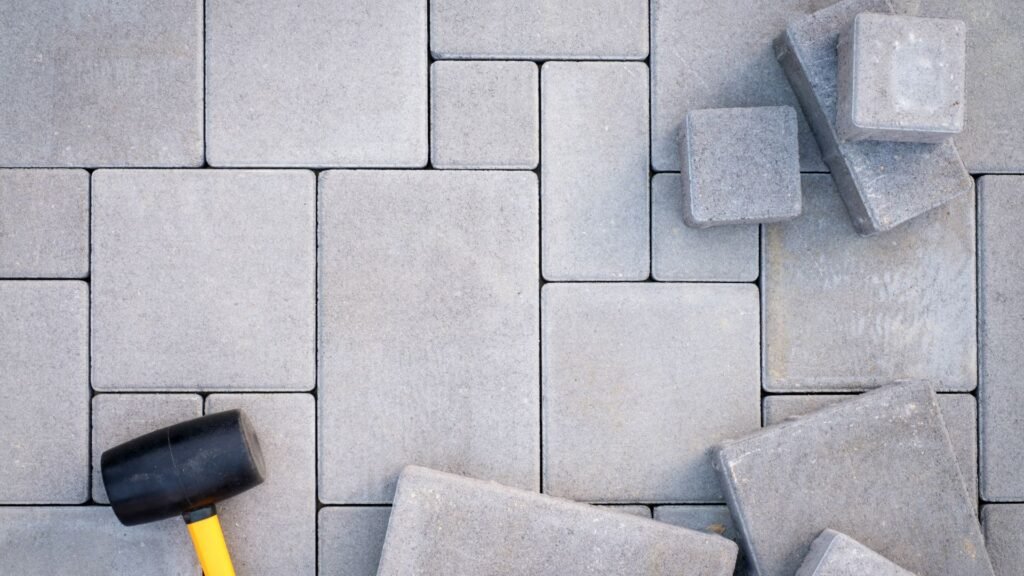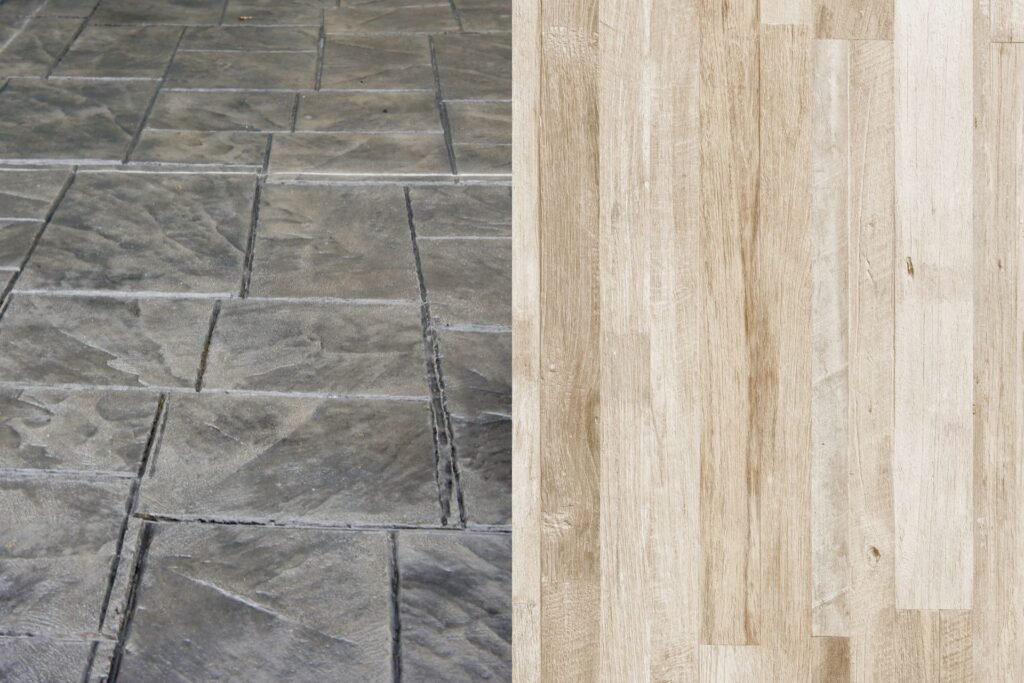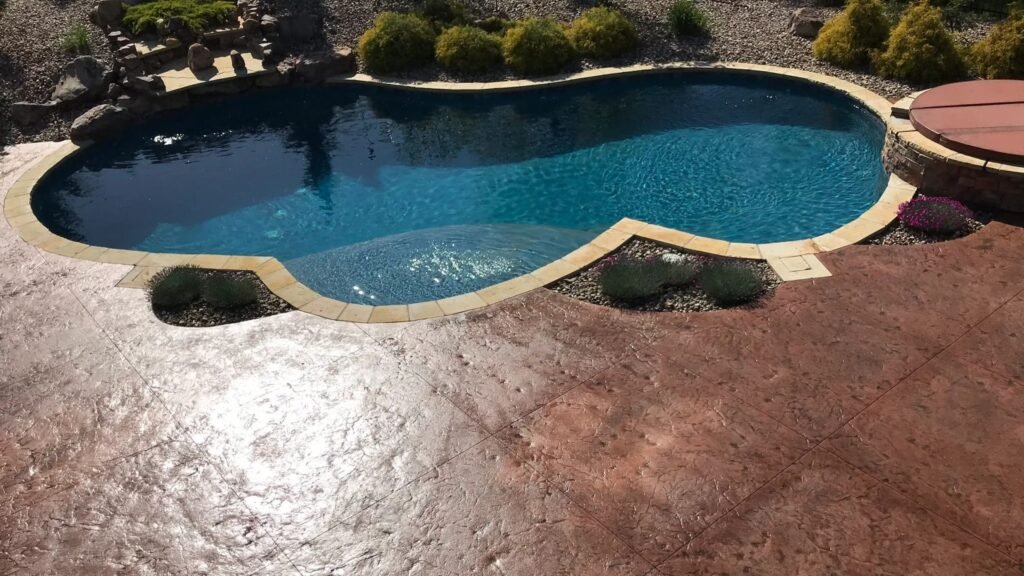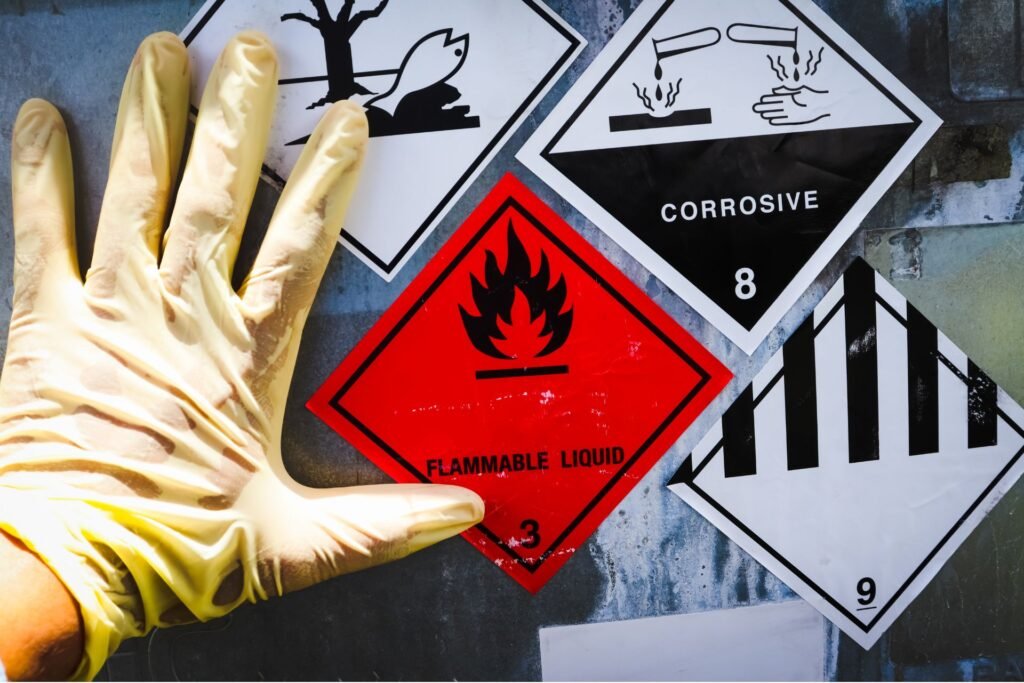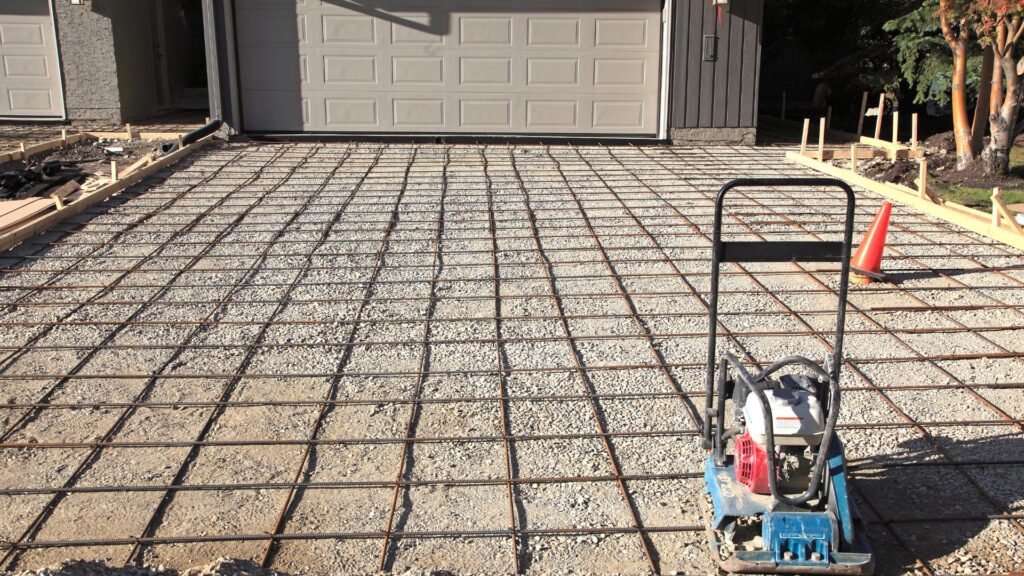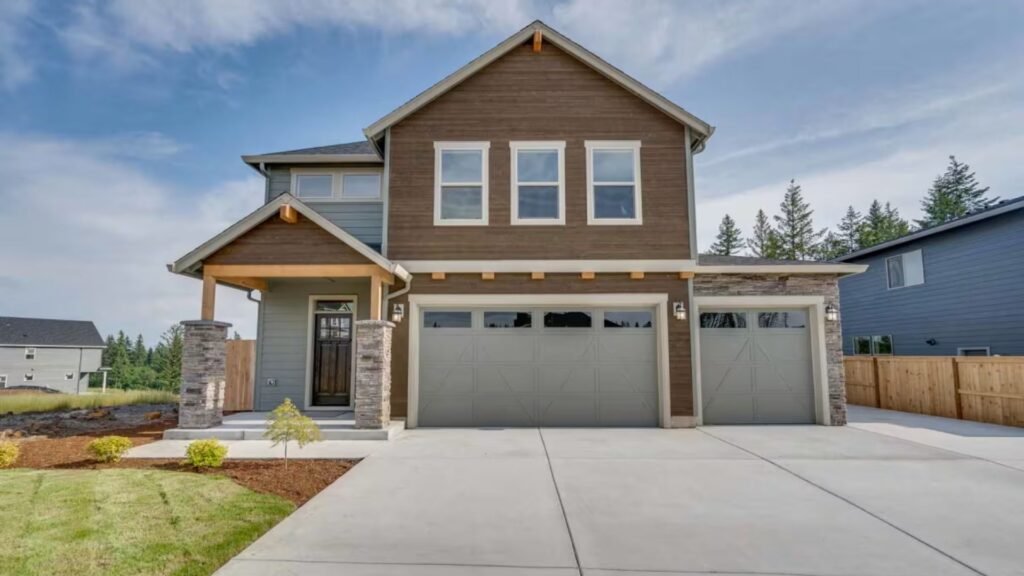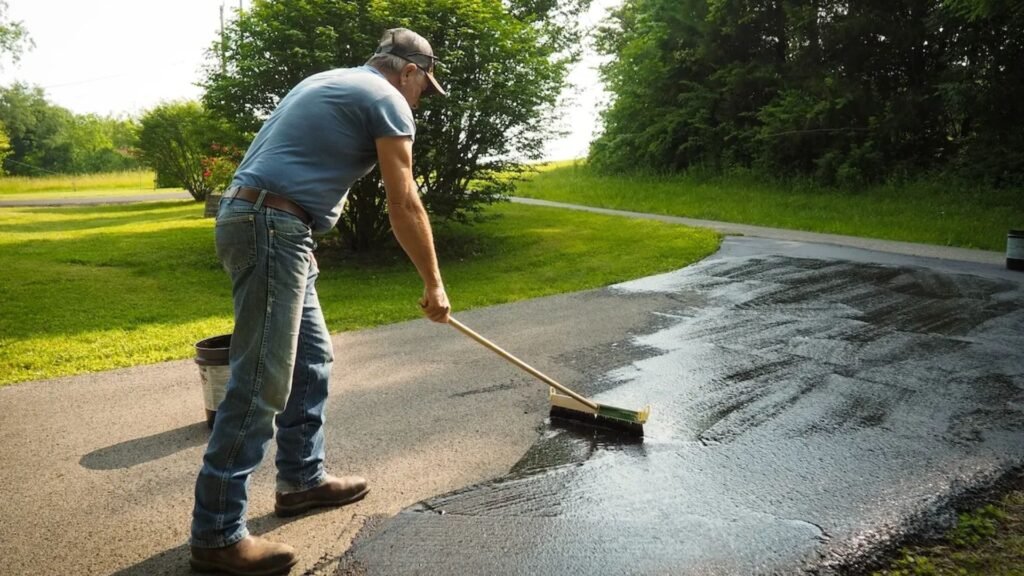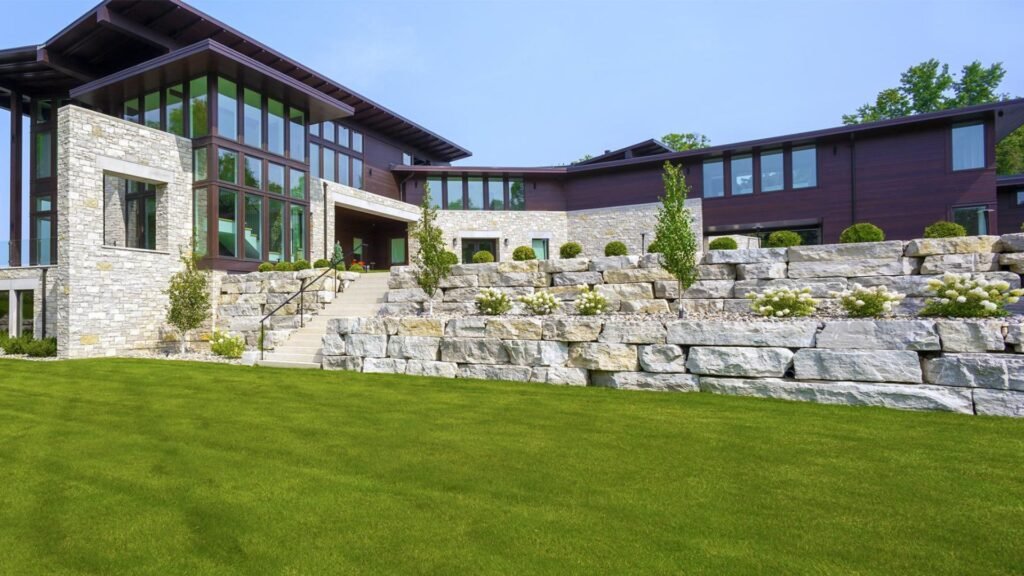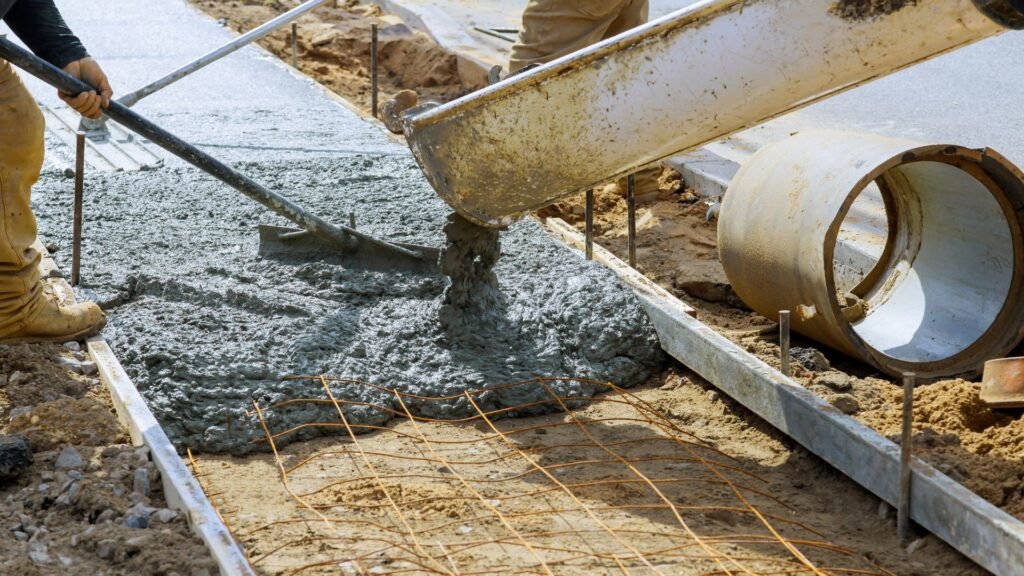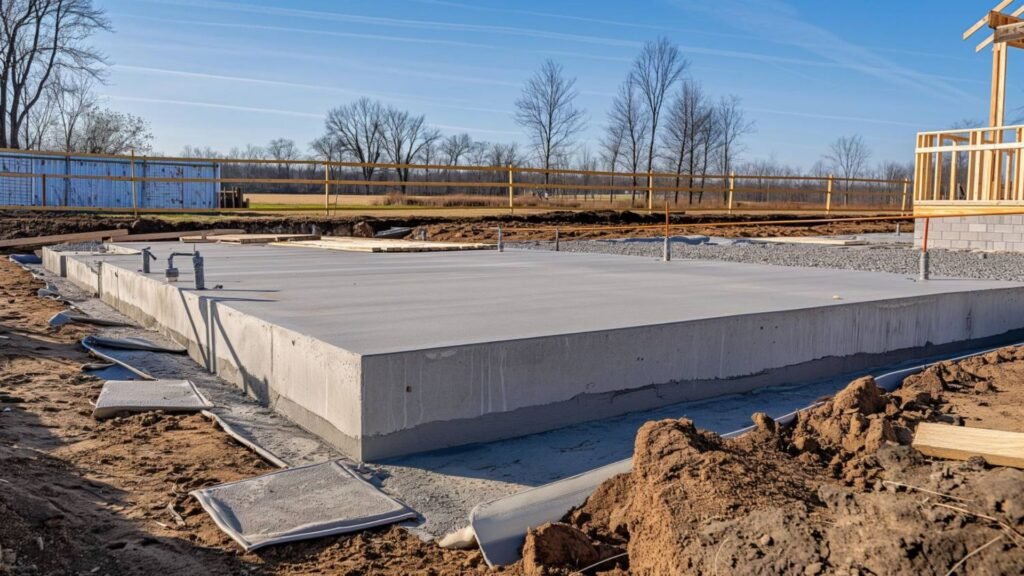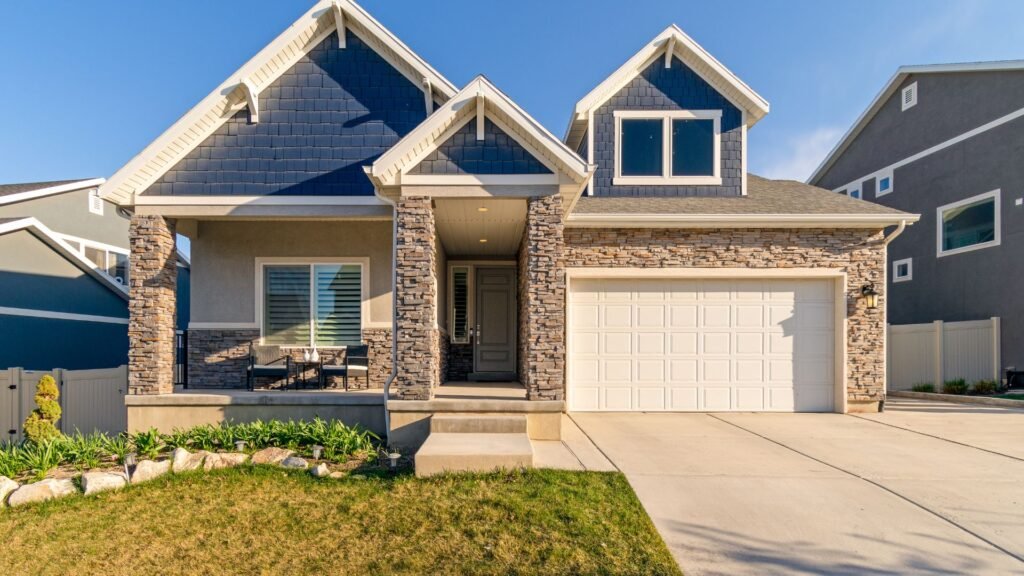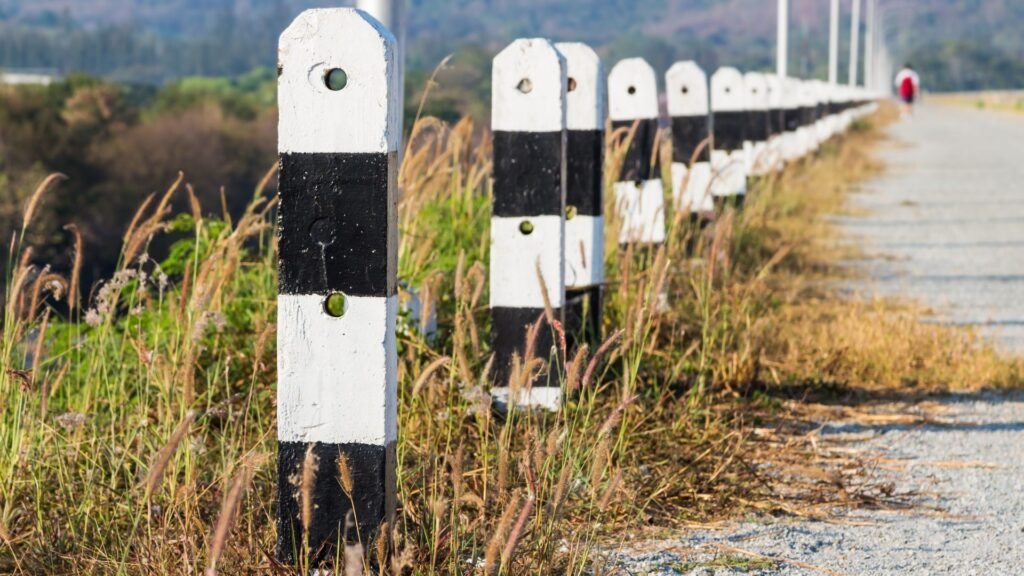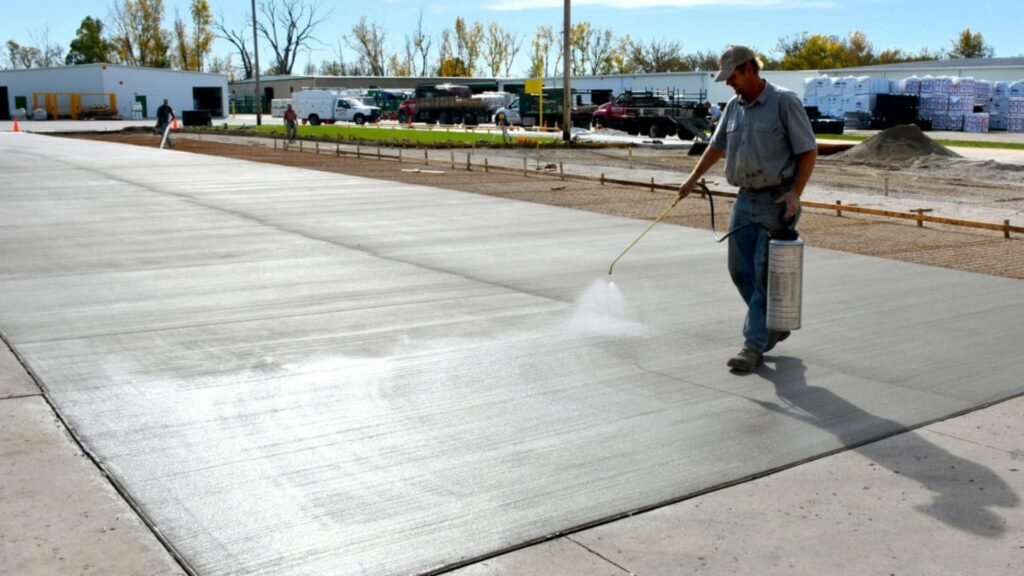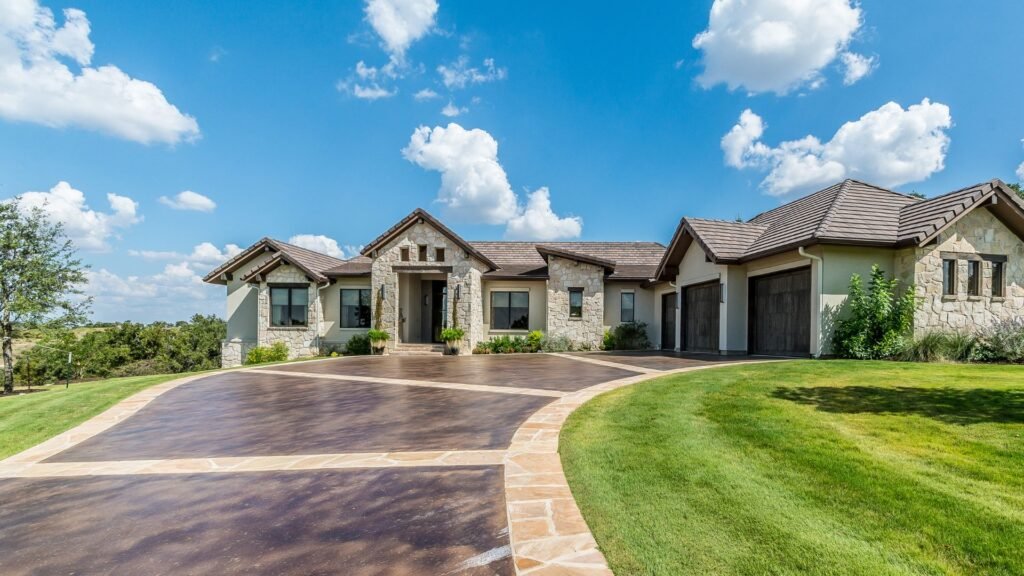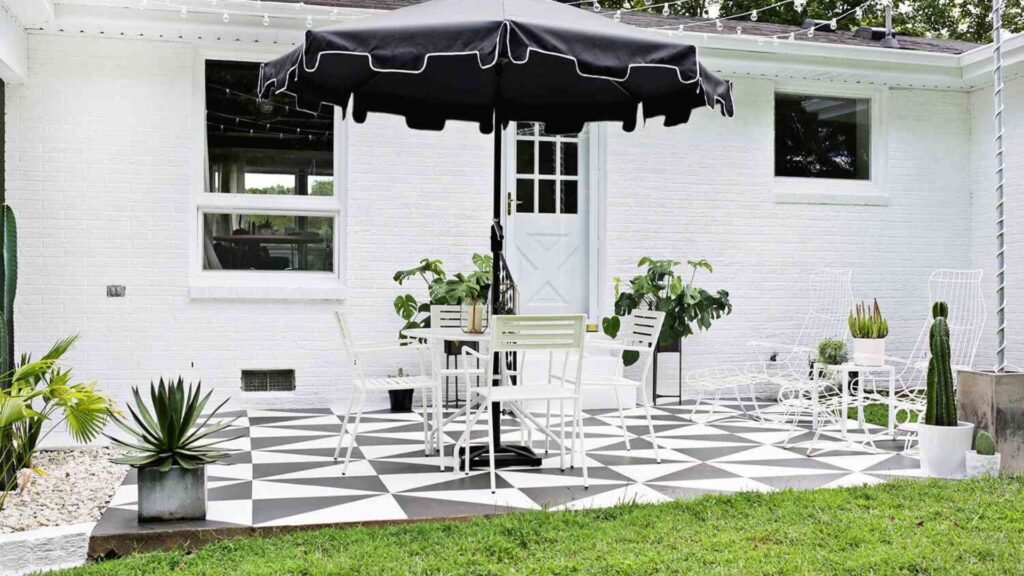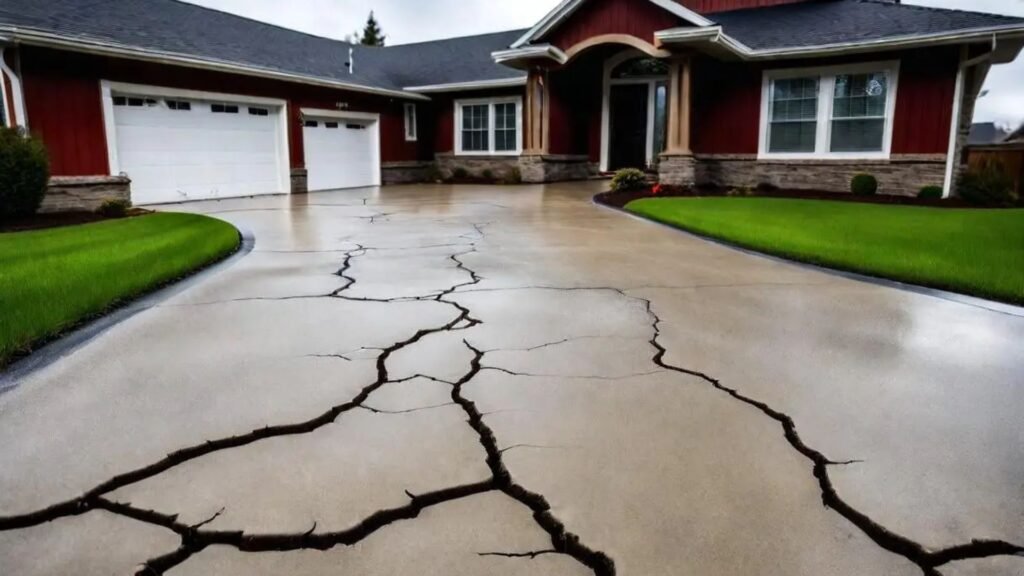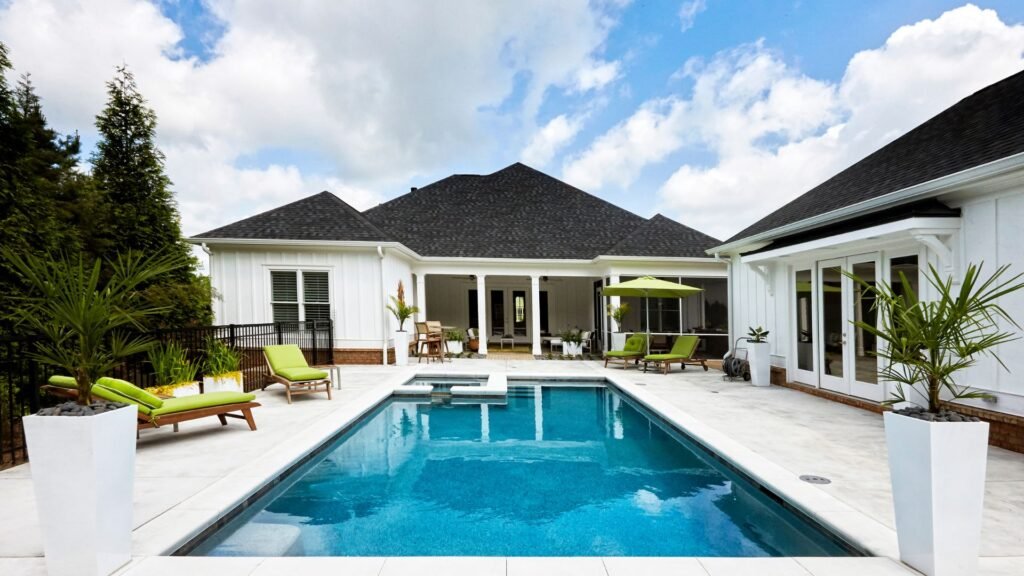Welcome to your ultimate guide on the cost of paving services in New Zealand. Whether you’re looking to upgrade your driveway, create a stunning patio, or improve the overall look of your property, understanding the costs involved in paving is crucial. In this post, we’ll dive into the different types of paving materials available, the factors that can influence pricing, and what you can expect when hiring a paving contractor in NZ. From residential driveways to commercial spaces, we’ll cover everything you need to know to make informed decisions and get the best value for your investment.
On average, the cost of paving services in New Zealand ranges from $50 to $150 per square meter, depending on the material used, site preparation, and the project’s complexity. Concrete and asphalt are more affordable, while brick or stone paving comes at a higher price due to labor and material costs.
Table of Contents
Why Invest In Paving Services?
Investing in professional paving services is more than just about improving the look of your driveway or parking lot. It brings numerous long-term benefits, from boosting property value to enhancing safety. Here’s why opting for quality paving is a smart move for both homeowners and businesses:
Enhance Curb Appeal
First impressions matter, especially when it comes to real estate. Whether you’re a homeowner looking to increase the value of your property or a business owner wanting to create a welcoming atmosphere, quality paving plays a significant role. Well-paved driveways, walkways, or parking lots instantly elevate the appearance of a property, giving it a polished and professional look.
Curb appeal can have a direct impact on property values. A neat, smooth, and visually appealing surface contributes to the aesthetic of the entire area. For homeowners, it can mean higher resale value, as potential buyers often gauge the overall maintenance of a property by its exterior. For commercial properties, attractive paving can draw in more customers and give an impression of care and attention to detail, potentially driving more business.
Functionality & Durability
Beyond aesthetics, paving offers critical functional benefits. Properly installed paving ensures smooth accessibility for both vehicles and pedestrians, making it easier for everyone to navigate your property. It helps eliminate common nuisances like mud, loose gravel, or dirt that can get tracked inside, especially in high-traffic areas or during bad weather.
Different types of paving materials, such as asphalt, concrete, or pavers, each bring their durability advantages. Asphalt, for instance, is known for its ability to withstand heavy loads and daily wear and tear. Concrete, on the other hand, provides a long-lasting, stable surface that’s perfect for both residential and commercial settings. Choosing the right paving material based on your specific needs ensures longevity, reducing the need for frequent repairs or replacements and saving you money over time.
Safety & Maintenance
Safety is a key concern for any property owner, and a well-paved surface directly contributes to minimizing risks. Uneven or damaged paving can be a tripping hazard, particularly in areas with high foot traffic. Quality paving reduces these risks by providing a smooth, even surface, decreasing the likelihood of slips, trips, or falls.
In addition to safety, maintenance is another reason to invest in professional paving services. Properly paved surfaces are much easier to clean and maintain. Whether it’s sweeping away debris, clearing snow, or washing down dirt, a well-installed paved area is far simpler to keep in good condition compared to gravel or dirt surfaces. Moreover, routine maintenance like seal coating for asphalt or power washing for concrete can extend the life of your paved area, further protecting your investment.
Investing in paving services is a smart decision for homeowners and business owners alike. It enhances curb appeal, adds functionality and durability to your property, and significantly improves safety. Whether you’re upgrading a driveway, parking lot, or walkway, quality paving ensures long-term benefits, making it a valuable investment that can increase both the aesthetic and monetary value of your property.

Types Of Paving Options In New Zealand
When choosing the best paving option for your property in New Zealand, there are several factors to consider, including budget, durability, and aesthetic preferences. Let’s explore some of the most popular paving options available, along with their pros, cons, and average costs.
Concrete Paving
Concrete paving is a popular choice for both residential and commercial projects due to its durability and low maintenance requirements. It offers the flexibility to create various designs through stamping or coloring, which makes it appealing for those looking to enhance curb appeal.
Pros
- Durability: Concrete is known for its long-lasting strength, making it an ideal option for driveways, patios, and pathways.
- Low Maintenance: Once installed, concrete requires minimal upkeep, making it a cost-effective choice over time.
- Customization Options: Stamped or colored concrete allows for various design possibilities to match your desired aesthetic.
Cons
- Higher Upfront Cost: The initial cost of concrete is higher compared to other materials like asphalt or gravel.
- Potential for Cracking: Over time, concrete may crack due to weather changes, ground movement, or heavy loads, requiring periodic repairs.
Average Cost in New Zealand
The average cost for concrete paving projects in New Zealand can range between $70 to $120 per square meter, depending on factors such as the complexity of the design and site preparation.
Asphalt Paving
Asphalt is another widely used paving material in New Zealand, particularly for driveways and larger areas. It’s well-known for its affordability and quick installation process, which makes it a practical choice for homeowners and businesses alike.
Pros
- Affordable: Asphalt is generally more cost-effective compared to other paving options, making it ideal for large areas like parking lots or long driveways.
- Fast Installation: Asphalt can be laid down quickly, reducing the time needed for your project to be completed.
- Good for Large Areas: Its affordability and ease of application make asphalt a good choice for covering expansive surfaces.
Cons
- Requires Maintenance: Over time, asphalt can develop cracks or potholes and may need sealing or patching to maintain its appearance and functionality.
- Not as Visually Appealing: While asphalt is practical, it may lack the aesthetic charm of options like brick or stone paving.
Average Cost in New Zealand
The average cost of asphalt paving in New Zealand typically falls between $40 to $80 per square meter, depending on the area and the project’s scale.
Brick or Stone Paving
Brick or stone paving is often chosen for its timeless aesthetic and high-end look. It’s a premium option, especially suited for areas where visual appeal is a priority, such as garden paths, patios, and outdoor entertainment areas.
Pros
- Aesthetic Appeal: Brick or stone pavers add a classic, elegant look to any outdoor space and can significantly boost your property’s curb appeal.
- Long-lasting: These materials are extremely durable and can withstand the test of time, making them worth the investment.
- Customizable Patterns: You can create intricate designs and layouts with brick or stone, giving you more flexibility in creating a unique space.
Cons
- Higher Labor and Material Costs: Due to the complexity of installation and the cost of materials, brick or stone paving tends to be more expensive.
Average Cost in New Zealand
Expect to pay anywhere from $100 to $200 per square meter for brick or stone paving, depending on the type of stone or brick, as well as the intricacy of the pattern.
Gravel or Loose Paving
Gravel is a budget-friendly option that is quick and easy to install. It’s often used in rural or informal settings, such as garden paths, driveways, or parking areas.
Pros
- Inexpensive: Gravel is one of the most affordable paving materials available, making it suitable for large areas without breaking the bank.
- Quick to Install: Unlike other paving options that require significant preparation and labor, gravel can be laid down relatively quickly and easily.
Cons
- Requires Regular Upkeep: Gravel tends to shift over time, especially with heavy foot traffic or vehicles, meaning it requires regular raking and topping up to maintain its appearance.
- Not Ideal for Heavy Traffic Areas: Because it’s a loose material, gravel may not hold up well in areas that see a lot of foot traffic or heavy vehicles.
Average Cost in New Zealand
The average cost for gravel paving ranges from $25 to $50 per square meter, making it one of the most affordable paving options available.
When selecting a paving option for your property in New Zealand, it’s essential to weigh the pros and cons of each material based on your budget, maintenance preferences, and the desired aesthetic. Whether you opt for durable concrete, budget-friendly asphalt, elegant brick or stone, or easy-to-install gravel, each option comes with its unique benefits and costs. By understanding these factors, you can make a well-informed decision that enhances both the functionality and visual appeal of your outdoor spaces.

Factors That Influence The Cost Of Paving Services In NZ
When planning to invest in paving services, it’s crucial to understand the various factors that can influence the overall cost. In New Zealand, the cost of paving can vary widely depending on a range of elements, from the size of the project to the materials used. Let’s break down the key aspects that play a significant role in determining the final price.
Size and Scope of the Project
One of the most obvious factors affecting paving costs is the size and scope of the project. The larger the area, the higher the cost will typically be, as more materials and labor are required.
- Smaller Residential Projects: If you’re paving a small driveway for a home, the costs will generally be lower. For instance, a 50-square-meter residential driveway is relatively straightforward and quick to complete, requiring fewer resources.
- Large Commercial Projects: On the other hand, a large-scale project like a commercial parking lot or public roadway can be significantly more expensive. A 500-square-meter parking lot will not only need more material, but the complexity of laying out parking spaces, curbing, and ensuring proper drainage can add to both time and labor costs.
Additionally, the complexity of the project such as curved pathways, intricate designs, or varying surface elevations can further increase the price. Simple, flat surfaces are easier and quicker to pave, while more complex shapes or slopes will require more preparation and expertise.
Material Choice
The type of material you choose for paving can have a substantial impact on cost. Different materials have varying price points, durability, and aesthetic appeal.
- Concrete: In New Zealand, concrete is a popular choice for driveways and walkways due to its durability and relatively moderate cost. It’s great for withstanding heavy traffic and weather conditions, but it may be more expensive than other materials.
- Asphalt: Asphalt tends to be more affordable than concrete, making it a popular choice for large areas like parking lots. However, it requires more maintenance over time, which can add to the long-term cost.
- Bricks and Pavers: For a more decorative and premium finish, bricks or paving stones are an excellent option. They offer a beautiful aesthetic but come with a higher upfront cost due to both the materials and the skilled labor required to lay them properly.
- Local Trends: In New Zealand, there’s a growing preference for eco-friendly materials and permeable pavers, which allow water to drain through them. These are often more expensive initially but can offer long-term benefits such as reduced flooding and lower environmental impact.
Site Preparation
Before any paving work can begin, the site must be properly prepared, and this process can have a significant impact on the total cost.
- Leveling and Excavation: If your property requires extensive leveling or excavation, the costs will rise. For example, if the land is uneven or has a steep slope, more effort and machinery will be needed to prepare the surface for paving.
- Drainage Installation: Proper drainage is crucial to prevent water from pooling on your newly paved surface. If the area doesn’t already have a sufficient drainage system, installing one can add to the cost.
- Existing Conditions: If you’re replacing an old driveway, the removal of the existing material (whether it’s asphalt, concrete, or gravel) adds another layer of cost. Similarly, tree roots or underground utilities may complicate the preparation process, increasing labor and time requirements.
Labor Costs
Labor costs in New Zealand can vary based on several factors, including location and the complexity of the project.
- Regional Differences: In more urban areas such as Auckland, Wellington, or Christchurch, labor rates are generally higher due to the increased demand for services and the cost of living. In rural areas, you might find lower labor costs, but the overall project could still be more expensive due to transportation costs for materials and workers.
- Skilled Labor for Complex Designs: If you’re opting for a more intricate design, such as a custom brick pattern or decorative stonework, you may need to hire skilled labor, which can increase the cost. For example, laying a detailed brick pattern requires precision and expertise, driving up both the time and price of the job.
Additional Features or Customization
Many paving projects include optional features that can enhance both the functionality and appearance of the paved area but come with additional costs.
- Decorative Edges: Adding decorative edges or borders to your paving can elevate the overall aesthetic, but this customization often requires additional materials and labor, increasing the cost.
- Sealing: Sealing the surface of the pavement helps protect it from weather damage and prolongs its lifespan. While not always necessary, it is a recommended step that adds to the initial price but can save you money on repairs in the long run.
- Lighting and Landscaping: Including lighting features along your driveway or pathway, or integrating the paving into a larger landscaping project, can also raise costs. These features are typically considered luxury additions but can greatly enhance the curb appeal and usability of the space.
Accessibility and Location
The location of your property and how accessible it is can play a crucial role in determining the overall cost of paving services.
- Urban vs. Rural Areas: In urban areas, it’s easier to transport materials and workers to the site, which can lower costs. However, in rural or remote areas, transportation costs may rise significantly. Additionally, if the area is difficult to access due to narrow roads or steep terrain, the complexity of delivering materials and machinery can add to the total price.
- Challenging Access: If your property is located in a hard-to-reach area, such as a steep hill or a densely wooded location, the logistics of getting equipment to the site can increase costs. In such cases, additional machinery or manpower may be required, adding to the overall expense.
In summary, the cost of paving services in New Zealand is influenced by a variety of factors, from the size and scope of the project to the materials used and the complexity of the site. By understanding these factors, you can better plan your budget and ensure that your paving project meets both your aesthetic and functional needs while staying within your financial constraints. Whether you’re paving a small driveway or a large commercial area, it’s important to consider these aspects to avoid unexpected costs and achieve the best results for your investment.

Common Cost Ranges For Paving Services In New Zealand
When considering paving services in New Zealand, it’s important to have a clear understanding of the associated costs. Paving prices can vary significantly based on the type of project, materials used, and the overall size of the area to be paved. Below, we’ll break down typical price ranges for different types of paving projects and provide examples to help you visualize what you might expect to pay.
General Overview of Costs
The cost of paving in New Zealand can depend on several factors, including whether you’re paving a driveway, patio, or commercial space, the materials you choose, and the complexity of the project. Here’s a broad look at the typical costs for different paving services:
- Driveway Paving: Driveways are a common area where homeowners invest in paving. For a basic asphalt or concrete driveway, you can expect to pay between $100 to $150 per square meter. More premium materials, such as natural stone or decorative concrete, can push the price up to $200 to $400 per square meter.
- Patio Paving: Patios are generally smaller projects but can still vary widely in cost depending on the material. Basic concrete pavers or bricks typically range from $90 to $150 per square meter, while premium materials like natural stone or porcelain tiles can cost anywhere from $200 to $500 per square meter.
- Commercial Paving: Paving for commercial spaces such as parking lots or large walkways tends to be priced per square meter, similar to residential projects, but larger-scale discounts might apply. Asphalt is often the preferred choice for these projects due to its durability and affordability, with costs ranging from $80 to $120 per square meter. Higher-end materials for aesthetic or heavy-duty purposes could increase the price significantly.
Cost Breakdown by Materials
The material you choose for your paving project will have a significant impact on the overall cost. Below are rough estimates of per-square-meter pricing for various materials commonly used in New Zealand:
- Concrete Pavers: $50 – $100 per m²
- Bricks: $80 – $120 per m²
- Natural Stone: $150 – $300 per m²
- Asphalt: $70 – $120 per m²
- Porcelain Tiles: $150 – $500 per m²
These costs usually include labor, but additional charges may apply for site preparation, drainage solutions, and custom designs.
Example Projects
To help you better understand what these costs translate to, let’s explore a few hypothetical project examples:
Basic Asphalt Driveway (50 m²)
If you’re paving a 50-square-meter driveway with asphalt, at a cost of around $100 per square meter, the total cost would be approximately $5,000. This price would cover the base preparation, paving, and some minor edging work.
Concrete Patio (30 m²)
For a 30-square-meter patio using mid-range concrete pavers at $120 per square meter, the total cost would come to around $3,600. This estimate includes labor, materials, and basic installation.
Commercial Parking Lot (200 m²)
If you’re paving a 200-square-meter parking area with basic asphalt, and your quote is around $80 per square meter, your project could cost $16,000. Commercial projects often include additional elements like line marking and drainage, which could increase the overall price.
Luxury Stone Pathway (20 m²)
If you opt for a high-end natural stone walkway of 20 square meters for $250 per square meter, the total price would be $5,000. This estimate might include intricate design work, which can elevate the cost.
Additional Factors Affecting Paving Costs
While the above estimates provide a general guide, it’s important to consider other factors that can affect the total cost of a paving project in New Zealand, such as:
- Site Preparation: Uneven terrain, poor soil conditions, or the need for extensive excavation could increase labor costs.
- Drainage: Ensuring proper drainage is critical for long-term durability and may require additional investment.
- Customization: Complex patterns, borders, or custom designs typically raise the overall cost of materials and labor.
By considering these factors, you can better plan for the potential costs of your paving project and select options that fit your budget and aesthetic goals.

How To Choose The Right Paving Contractor
When it comes to choosing the right paving contractor for your project, making an informed decision can save you time, money, and potential headaches down the road. Whether you’re planning a driveway renovation, patio installation, or a large-scale commercial paving project, finding the right professional is crucial to ensuring high-quality results. Below, we’ll guide you through key steps to help you make the best choice, especially when selecting a contractor in New Zealand.
1. Research and Compare
The first step in selecting a paving contractor is thorough research and comparison. Start by gathering quotes from multiple paving companies. This is essential because prices can vary based on materials, labor, and the scope of the project. However, don’t just choose the cheapest option to get the best value for your money.
How to get started
- Obtain multiple quotes: Reach out to at least three different paving contractors to get a comprehensive idea of the costs and services offered.
- Check online reviews: Look for reviews on Google, social media, and trusted platforms to see what previous clients have experienced. A company’s online reputation can give you insight into its reliability, quality of work, and customer service.
- Review portfolios: Always ask for examples of previous work. This allows you to gauge the contractor’s experience and ability to handle projects similar to yours.
- Request references: Don’t hesitate to ask contractors for references from previous clients. Speaking directly with someone who has worked with the company can give you a more personalized view of their professionalism and workmanship.
By comparing quotes, reading reviews, and looking at previous projects, you can narrow down your choices and ensure that you hire a paving contractor with a proven track record.
2. Look for Local Expertise
Choosing a contractor with local expertise can make a significant difference, especially in New Zealand, where the climate and conditions can impact paving projects. Local contractors will be familiar with the specific challenges posed by New Zealand’s weather patterns, such as heavy rain, extreme UV exposure, and fluctuating temperatures, which can affect the longevity and performance of paved surfaces.
Key benefits of hiring a local contractor
- Climate understanding: Local contractors know which materials are best suited to handle New Zealand’s unique climate. For example, certain paving materials may perform better in areas prone to frost or heavy rain.
- Knowledge of regulations: Paving contractors in NZ must adhere to specific regulations and building codes, particularly when it comes to drainage, erosion control, and land stability. A local contractor will be well-versed in these requirements, ensuring that your project meets all necessary legal standards.
- Quick access to resources: Local companies are likely to have established relationships with suppliers and subcontractors in the area, which can speed up project timelines and potentially reduce costs.
Opting for a contractor with experience in your region can give you peace of mind, knowing that they are equipped to deal with local environmental factors and compliance issues.
3. Ask About Guarantees and Warranties
A reputable paving contractor should offer guarantees or warranties for their work and the materials they use. This is crucial for ensuring that your investment is protected and that you won’t face unexpected repair costs down the line.
What to ask about guarantees and warranties
- Workmanship warranties: A workmanship warranty covers any defects in the contractor’s installation process. This ensures that if any issues arise due to poor workmanship, the contractor will fix the problem at no additional cost.
- Material warranties: Ask about the warranties on the materials being used. For instance, high-quality pavers often come with manufacturer warranties that cover any defects in the materials themselves.
- Length of coverage: Make sure to understand the duration of both workmanship and material warranties. Longer warranties often reflect a contractor’s confidence in the durability of their work and the quality of their materials.
Securing clear guarantees and warranties is essential for ensuring long-lasting, high-quality results. It provides you with protection in case any problems arise after the project is completed.
Choosing the right paving contractor in New Zealand requires careful consideration of multiple factors. By researching and comparing different companies, selecting a local expert familiar with NZ’s climate and regulations, and ensuring that the contractor offers comprehensive guarantees and warranties, you can make a well-informed decision that will result in a successful and durable paving project. Take your time, do your homework, and don’t hesitate to ask questions your paved surfaces will thank you for it in the long run.

Tips For Reducing Paving Costs Without Compromising Quality
When planning a paving project, finding ways to reduce costs without sacrificing quality is key to ensuring the longevity and durability of your paved surfaces. Fortunately, there are several strategies you can employ to keep your project budget-friendly while still achieving high-quality results. Below are some essential tips to help you cut down on paving costs without compromising on the quality of the final product.
Choose the Right Time for Your Project
Timing can play a crucial role in determining the overall cost of your paving project. Contractors typically experience higher demand during peak seasons, such as late spring and summer. To avoid premium rates, try scheduling your project during less busy periods like early spring or late fall. During these off-peak times, contractors are often more flexible with pricing since they have fewer projects lined up. By planning and choosing the right time for your project, you could negotiate a better deal, leading to substantial savings.
Opt for Affordable Materials
The type of materials you choose for your paving project can significantly impact the total cost. While it might be tempting to go for the most premium options, several cost-effective materials can offer the same durability and aesthetic appeal. For example, consider alternatives like recycled asphalt or concrete, which are both budget-friendly and environmentally conscious. Gravel is another option that works well for driveways and pathways, offering a classic look at a fraction of the cost. Discuss your needs with your contractor, and they can recommend materials that balance affordability and quality.
DIY Prep Work
Another effective way to save money on your paving project is by handling some of the preparatory work yourself. Before the paving begins, you can take on tasks such as clearing the site of debris, removing old pavement, or leveling the ground. By doing these tasks on your own, you can reduce the amount of labor your contractor needs to do, which will ultimately lower your overall costs. However, it’s important to consult with your contractor before starting any prep work to ensure you’re not unintentionally making the job harder or disrupting the paving process.
Consider Long-Term Maintenance
While it might be tempting to choose the cheapest materials or skip certain steps in the paving process, cutting corners could lead to higher maintenance costs in the future. Investing in durable materials and proper installation techniques from the beginning can prevent frequent repairs and costly overhauls down the line. For example, asphalt requires regular sealing to maintain its integrity, so choosing a more durable material upfront could reduce your long-term maintenance needs. By considering the long-term care and durability of your paved surfaces, you can save more money over time.
In summary, saving on paving costs doesn’t have to mean sacrificing quality. By choosing the right time to schedule your project, opting for affordable yet durable materials, handling some of the prep work yourself, and thinking about long-term maintenance, you can reduce expenses while still ensuring a high-quality finish.

FAQs: About The Cost Of Paving Services NZ
How much does it cost to pave a driveway in New Zealand?
The cost of paving a driveway in New Zealand typically ranges from $50 to $150 per square meter. The final price depends on factors like the material you choose (concrete, asphalt, brick, etc.), the size of the driveway, and any site preparation required.
What are the most affordable paving materials in NZ?
Asphalt and gravel are generally the most affordable paving materials in NZ. Asphalt costs between $50 and $80 per square meter, while gravel can be even less expensive. However, more durable materials like concrete or brick can cost more but last longer with less maintenance.
What factors affect the cost of paving services in NZ?
Several factors influence paving costs, including the type of material, the size of the project, the amount of site preparation (such as leveling or excavation), labor rates, and any additional features like decorative edges or sealing.
Is concrete paving more expensive than asphalt in New Zealand?
Yes, concrete paving is usually more expensive than asphalt. Concrete typically costs between $70 and $150 per square meter, while asphalt is more affordable, ranging from $50 to $80 per square meter. However, concrete is known for its durability and lower long-term maintenance costs.
How long does paving last in New Zealand’s climate?
With proper installation and maintenance, paving can last anywhere from 10 to 30 years in New Zealand, depending on the material. Concrete and brick can last 20 to 30 years or more, while asphalt typically lasts around 10 to 15 years before needing replacement.
Can I reduce the cost of paving by doing some work myself?
Yes, you can reduce costs by handling some of the preparatory work yourself, such as clearing the site or removing old paving. However, it’s important to leave the actual paving and installation to professionals to ensure a quality, durable finish.
Are there different costs for residential and commercial paving in NZ?
Yes, commercial paving projects tend to be more expensive due to the larger scale and higher durability requirements. Residential paving is often smaller and less complex, making it less costly. Commercial projects may also require special materials or designs, which can increase the price.
Do paving contractors in NZ offer warranties or guarantees?
Many reputable paving contractors in New Zealand offer warranties or guarantees on their workmanship and materials. It’s essential to ask about these when getting quotes to ensure you’re covered for any potential issues after the installation.
What’s the best time of year to hire paving services in New Zealand?
Spring and summer are the best seasons to schedule paving projects in NZ, as the weather is generally more stable, allowing for better curing and fewer weather-related delays. Booking during these times may come with higher demand, so it’s wise to plan.
How do I choose the right paving contractor in New Zealand?
To choose the right contractor, gather quotes from multiple companies, check their reviews and portfolios, and ask for references. It’s also essential to choose a contractor familiar with NZ’s specific climate and conditions and ensure they are licensed and insured for the work.
Conclusion
Understanding paving costs in New Zealand is essential for making informed decisions on your next outdoor project. We’ve covered the key factors that influence pricing, such as material choice, project size, and labor costs, all of which can significantly impact your budget. Whether you’re considering concrete, asphalt, or brick pavers, it’s crucial to compare your options carefully. To get started, we encourage you to reach out to local paving experts for a personalized quote, ensuring the best solution for your needs. The right paving not only enhances the aesthetic appeal of your property but also improves its functionality, making it a worthwhile investment for any homeowner.
About the Author:
Mike Veail is a recognized digital marketing expert with over 6 years of experience in helping tradespeople and small businesses thrive online. A former quantity surveyor, Mike combines deep industry knowledge with hands-on expertise in SEO and Google Ads. His marketing strategies are tailored to the specific needs of the trades sector, helping businesses increase visibility and generate more leads through proven, ethical methods.
Mike has successfully partnered with numerous companies, establishing a track record of delivering measurable results. His work has been featured across various platforms that showcase his expertise in lead generation and online marketing for the trades sector.
Learn more about Mike's experience and services at https://theleadguy.online or follow him on social media:
